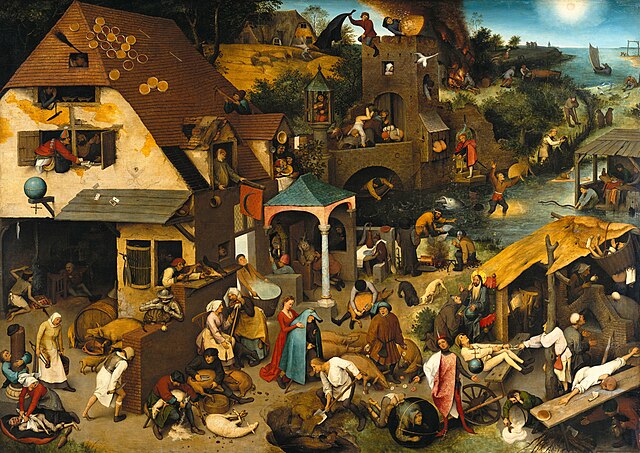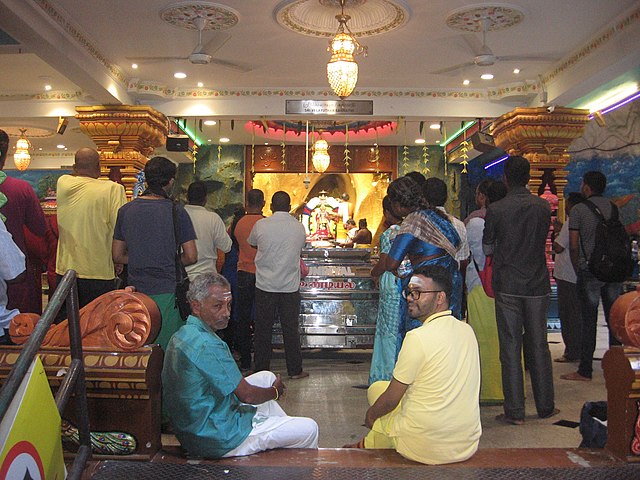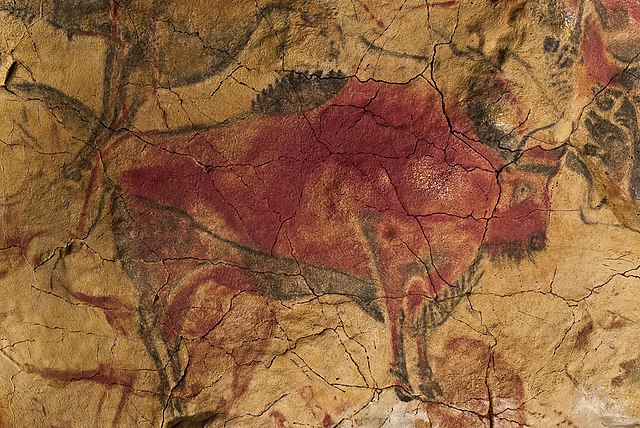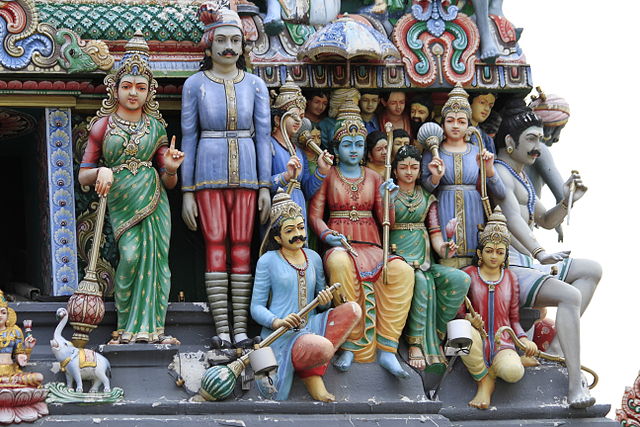Folklore is the body of expressive culture shared by a particular group of people, culture or subculture. This includes oral traditions such as tales, myths, legends, proverbs, poems, jokes, and other oral traditions. This also includes material culture, such as traditional building styles common to the group. Folklore also encompasses customary lore, taking actions for folk beliefs, and the forms and rituals of celebrations such as Christmas, weddings, folk dances, and initiation rites.
Netherlandish Proverbs by Pieter Bruegel the Elder, 1559
A European folk tale, Little Red Riding Hood; illustration by Jessie Willcox Smith, 1911
A German folk tale, Hansel and Gretel; illustration by Arthur Rackham, 1909
Indian Folk Worship at Batu Caves, Selangor Malaysia
Culture is a concept that encompasses the social behavior, institutions, and norms found in human societies, as well as the knowledge, beliefs, arts, laws, customs, capabilities, and habits of the individuals in these groups. Culture is often originated from or attributed to a specific region or location.
Human symbolic expression developed as prehistoric humans reached behavioral modernity.
Religion and expressive art are important aspects of human culture.
Germans marching during a folk culture celebration
Pygmy music has been polyphonic well before their discovery by non-African explorers of the Baka, Aka, Efe, and other foragers of the Central African forests, in the 1200s, which is at least 200 years before polyphony developed in Europe. Note the multiple lines of singers and dancers. The motifs are independent, with theme and variation interweaving. This type of music is thought to be the first expression of polyphony in world music.








